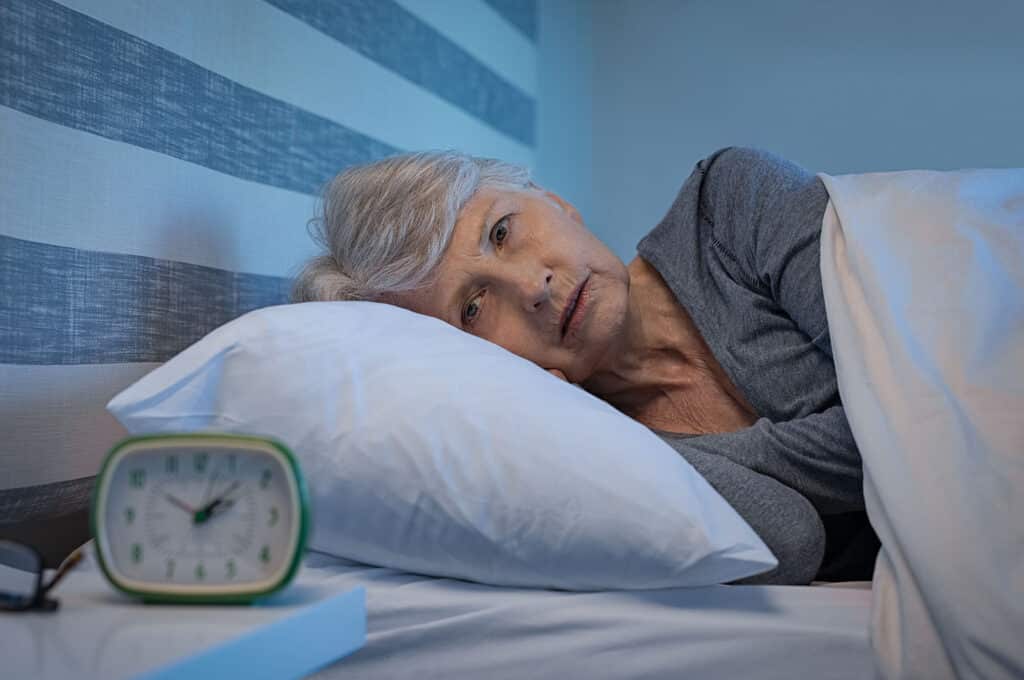Getting enough rest and getting good rest is important for your loved one who is recovering from a stroke. Without the ability to have a quality and consistent sleep schedule, your loved one risks delaying his recovery from the stroke, as well as increasing his risk of developing mental health conditions like depression. Sleep deprivation can also affect how he navigates his day and increase his risk of falling. Stroke care at home providers can help.
Table of Contents
ToggleCommon Sleep Disturbances in Stroke Victims
- Sleep-related breathing disorders like Sleep Apnea: Abnormal breathing patterns cause these disorders and can interrupt your loved one’s sleep with loud snoring, gasping, and even choking during the nighttime hours. Sleep apnea can increase the risk of a second stroke.
- Insomnia: With insomnia, your loved one may struggle with falling asleep or staying asleep. This lack of sleep will create a drowsy feeling during the day, making it difficult to focus and follow tasks, both of which are an important part of his stroke recovery.
- Sleep/wake Cycle Disorders: Some stroke victims lose the ability to get sleepy at night because they’re body is no longer affected by the sun in the morning or the dark in the evening.
Seven Tips for Managing Sleep Issues
Whether you are providing all of the care for your loved one or you have someone helping you with stroke care at home, you can both take steps to help your loved one sleep better at night.
- Allow him to only use the bedroom for sleeping. When morning arrives, encourage him to get out of bed and leave the bedroom for the day. Even if he needs to nap, see if there is a comfortable place on a couch or recliner where he can take a short nap.
- Speaking of naps, they should be short. Any naps longer than 30 minutes might interfere with his ability to sleep through the night. And try to keep those naps from occurring later in the day where they’ll interrupt his ability to go to sleep on schedule.
- Keep him on a regular sleep schedule. Believe it or not, sleeping in on the weekends is not good. Your loved one should strive to wake up and go to bed at the same time each day.
- Be active during the day. This is a great place where your home care provider assisting with stroke care at home services can help. Ask your stroke care at home provider to help with getting your loved one a little exercise each day they visit. If that exercise can be outside in the sun, even better!
- Have a regular bedtime routine to help your loved one’s body get ready for sleep. Stroke care at home providers can help, whether a warm bath, reading a book, or listening to some calming music. Try to help him stay away from any electronics during this time.
- At night, make sure the room is dark and at a comfortable temperature. Too hot or too cold can both interfere with a good night’s sleep and any outside light should be blocked out.
- Reduce noise at night as well. Some people like complete quiet while others might benefit from “white noise,” or a consistent low-grade sound like a fan or humidifier running.
If sleep continues to be an issue, make sure to talk to his doctor about other steps that can be taken to improve his sleep.
Providing exceptional Stroke Care at Home in Alexandria, VA, for seniors and families in the Northern Virginia area, including Arlington, Alexandria, McLean, Reston, Burke, Ashburn, Centreville, Springfield, Manassas, and Oakton. Call today to speak with our caring staff: (703) 272-8838.
- How 24-Hour Home Care Helps Enhance the Health and Well-Being of Seniors With Chronic Conditions - June 6, 2025
- What Are Some Surprising Early Signs of Dementia? - May 22, 2025
- Training of the Month: Lymphedema - May 15, 2025




